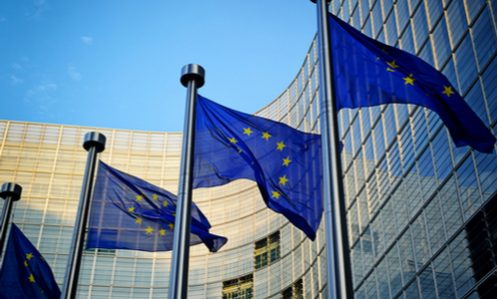The European Commission has adopted a Temporary Crisis Framework to enable Member States to use the flexibility foreseen under State aid rules to support the economy in the context of Russia’s invasion of Ukraine.
Executive Vice-President Margrethe Vestager, in charge of competition policy, said “In this critical moment the European Union continues to stand with Ukraine and its people. We must oppose this cruel invasion as it is also our freedom that is at stake.
The sanctions adopted by the EU and its international partners have severely affected the Russian economy.
These sanctions also take a toll on the European economy and will continue to do so in the coming months. We need to mitigate the economic impact of this war and to support severely impacted companies and sectors. And we need to act in a coordinated manner.
With this in mind, the Commission will enable Member States to use the flexibility foreseen under State aid rules to tackle this unprecedented situation, while protecting the level playing field in the Single Market.
The Temporary Crisis Framework complements the existing State aid toolbox with many other possibilities already available to Member States, such as measures providing compensation to companies for damages directly suffered due to exceptional circumstances, and measures outlined in the Commission Communications on energy market developments.
The new framework will enable Member States to (i) grant limited amounts of aid to companies affected by the current crisis or by the related sanctions and countersanctions; (ii) ensure that sufficient liquidity remains available to businesses; and (iii) compensate companies for the additional costs incurred due to exceptionally high gas and electricity prices.
These types of measures will be available also to companies that qualify as being in difficulty, as they may face acute liquidity needs due to the current circumstances, arriving on the heels of the coronavirus pandemic. Sanctioned Russian-controlled entities will be excluded from the scope of these measures.
To give one example: if Member States want to minimise the impact of the sharp increase of input costs, they can immediately introduce schemes to grant up to €400,000 per company affected by the crisis. The Commission is ready to work with Member States immediately to find workable solutions that preserve this important part of our economy, using the full flexibility under State aid rules.
In order to preserve the level playing field in the Single Market, the new Temporary Crisis Framework includes a number of safeguards. Member States are also invited to include sustainability requirements for granting aid for the additional energy costs linked to the high gas and electricity prices.
The Commission will continue to monitor the situation and provide the necessary support to governments and citizens.”
Want more news? Subscribe to CPI’s free daily newsletter for more headlines and updates on antitrust developments around the world.

